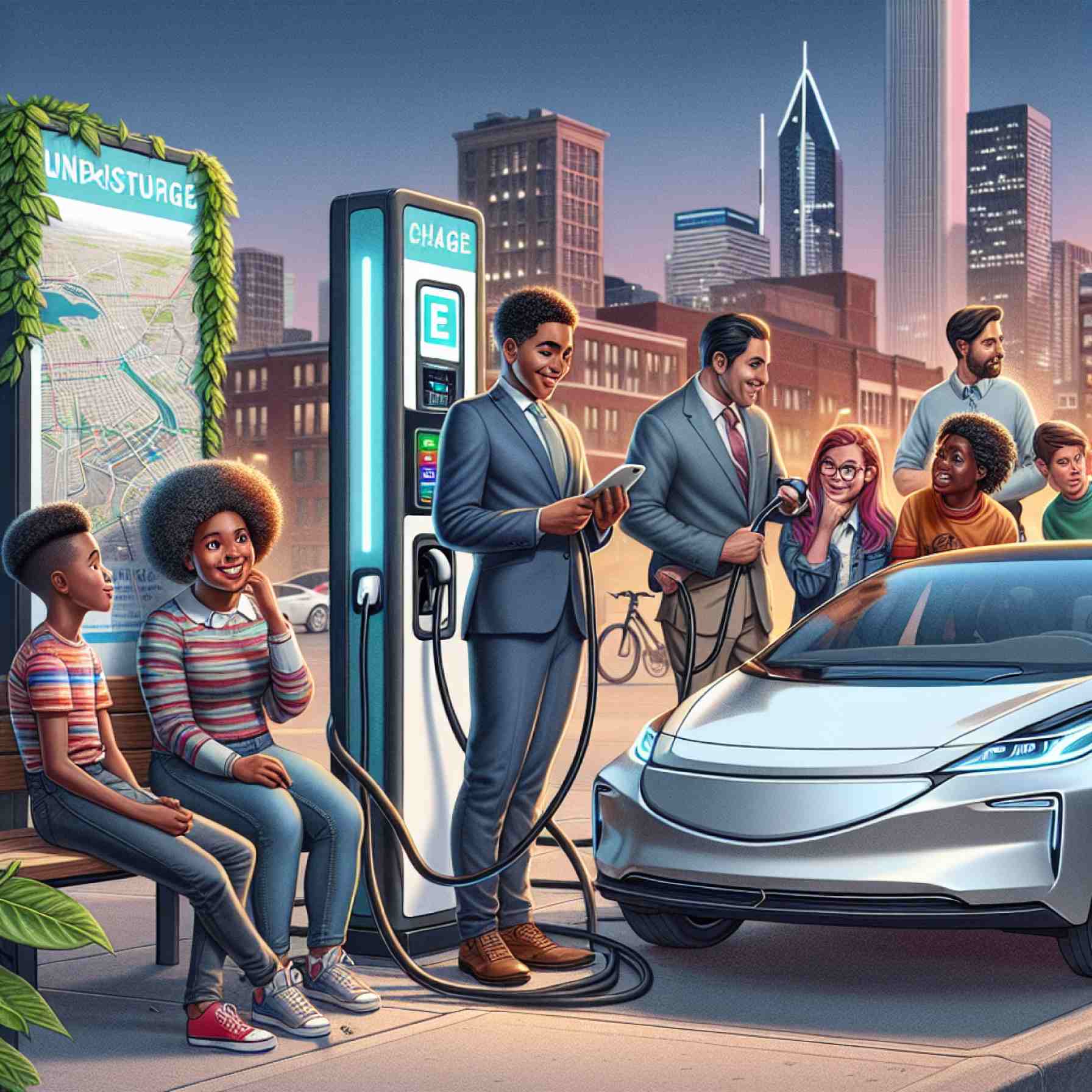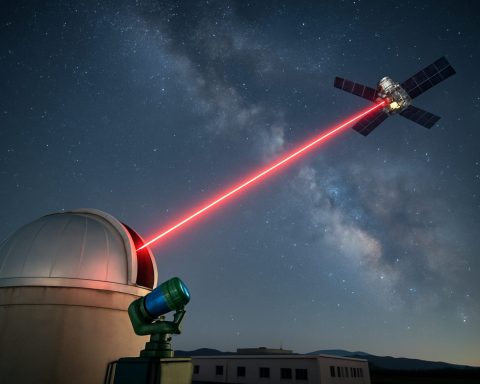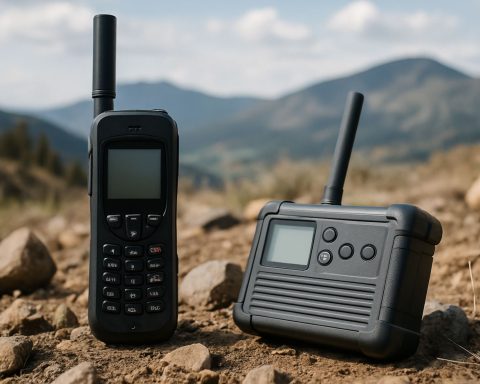- Electric vehicle registrations in Chicago increased by 50% in early 2025, spotlighting a growing trend towards sustainable transportation.
- The “Chicago Moves Electric Framework” aims to address the lag in charging infrastructure by ensuring equitable access citywide.
- Focus is on supporting historically underserved neighborhoods, particularly Chicago’s South and West Sides, to reduce emissions and improve air quality.
- Plans include a mix of Level 2 and DC fast charging stations at public locations, boosting accessibility for ride-shares and commercial vehicles.
- Chicago targets 2,500 public passenger EV charging stations by 2035, a testament to its commitment to ecological responsibility.
- Mayor Brandon Johnson stresses the importance of equitable growth, integrating community input for cleaner air and enhanced mobility across all neighborhoods.
- Chicago’s initiative could serve as a leading model for integrating electric innovation with social equity in urban environments.
Amid the hustle and bustle of the Windy City’s concrete sprawl, a quiet revolution accelerates. Chicago rides the electric wave, with pure battery electric vehicle (BEV) registrations surging by a remarkable 50% in early 2025. Yet, as sleek electric cars zip through its avenues, the city faces an electrifying challenge: charging stations aren’t sprouting as swiftly.
In response, the Chicago Department of Transportation (CDOT) unveils a strategy to keep up with Chicago’s electric ambitions — the “Chicago Moves Electric Framework.” This forward-thinking blueprint envisions a greener city offering equitable access to charging stations, focusing attention where it’s needed most. The novel plan solicits residents’ opinions, ensuring that the framework aligns with community demands and contributes to the city’s broader environmental goals.
Here’s what sets this plan apart: a commitment to combating the inequities ingrained in urban electrification. Historically underserved neighborhoods — like those on Chicago’s South and West Sides, burdened by legacy of industrial emissions — stand to gain the most from increased access to electric transportation. Where clouds of diesel fumes have long lingered, the breeze of change promises fresher air, with a plan centered on reducing emissions particularly in these areas.
The framework isn’t just about installing chargers; it envisions electrifying the municipal fleet and steering public health in a positive direction. Layered into this strategy is a mix of initiatives — Level 2 and DC fast charging stations will blossom across libraries and even Chicago’s bustling Midway Airport, making electric options more attractive not just to individuals but to ride-share fleets and commercial vehicles.
Furthermore, ambitions soar with a target of 2,500 public passenger EV charging stations by 2035. As CDOT plants seeds of sustainability citywide, the groundwork for installing such infrastructure should steer the city’s path toward greater ecological responsibility.
This effort signifies more than just infrastructure—it’s a pledge to integrate the voices of Chicago’s diverse communities into a cleaner, more efficient future. Mayor Brandon Johnson emphasizes that cleaner air and improved mobility should not remain the purview of affluent neighborhoods alone but ripple through the entire city, benefiting every Chicagoan.
The takeaway? Chicago’s model displays an audacious ambition to merge electric innovation with social equity, aiming to set a precedent for urban centers everywhere. As other cities idle on the sidelines, Chicago races ahead, sketching a roadmap that could redefine urban electrification for generations to come.
Chicago Races Toward Electric Future: What You Need to Know
Chicago’s Electric Shift: More Than Just Cars
Chicago’s commitment to electrification marks a significant leap toward a sustainable future, but there are layers to this story that reveal how comprehensive the city’s approach really is. Here’s a deeper dive into the electrification wave, focusing on lesser-explored aspects and providing actionable insights for residents and city planners.
1. How-to Steps: Converting to Electric in Chicago
– Evaluate Your Current Needs: Assess how your vehicle usage could benefit from switching to an electric vehicle (EV). Consider factors like daily commute distances, potential savings on fuel, and environmental impact.
– Explore Incentives: Chicago offers various incentives for EV buyers. Research state and federal tax credits that can offset the initial purchase costs.
– Plan for Charging: Investigate charging station locations near your home, workplace, and frequent destinations. With CDOT’s expansion plan, anticipate more options soon.
2. Real-World Use Cases and Benefits
– Fleet Electrification: Businesses operating fleets, such as delivery services or taxis, can significantly reduce operating costs and emissions by transitioning to electric vehicles.
– Community Air Quality: In neighborhoods historically plagued by industrial emissions, increased EV adoption can noticeably improve air quality and public health.
3. Market Forecasts & Trends
According to a BloombergNEF report, global EV adoption is expected to surge, with electric cars making up 58% of passenger vehicle sales by 2040. Chicago’s initiatives align with global trends, reflecting a strategic positioning that could place the city at the forefront of national EV adoption.
4. Controversies & Limitations
Despite the ambitious framework, challenges remain. Critics point out that:
– Infrastructure Lag: The pace of charging station installation might not meet the projected growth in EV registrations, creating temporary accessibility issues.
– Equity Concerns: Ensuring equitable access to charging infrastructure, particularly in underserved areas, demands continuous oversight and dedicated funding.
5. Features, Specs & Pricing of Charging Stations
– Level 2 Chargers: Suitable for residential and commercial use, offering charging in a few hours. Prices range from $500 to $1,500.
– DC Fast Chargers: Ideal for quick public charging solutions, capable of charging up to 80% in 20-30 minutes. Prices can exceed $30,000, often installed in high-traffic and strategic locations.
6. Security & Sustainability
CDOT emphasizes sustainability not just in emissions but in solar-powered charging stations, which mitigate the grid’s load and ensure resilience against power outages.
Conclusion: Actionable Recommendations
– Encourage local businesses to consider installing charging stations, leveraging incentives.
– Participate in community forums to ensure your neighborhood’s electrification needs are addressed.
– Explore EV purchase options to embrace greener mobility, reducing your carbon footprint.
For more information about the city’s initiatives and updates, visit the City of Chicago’s official website.
Switching to an electric vehicle in Chicago not only supports environmental goals but also strengthens community resilience against climate change.










